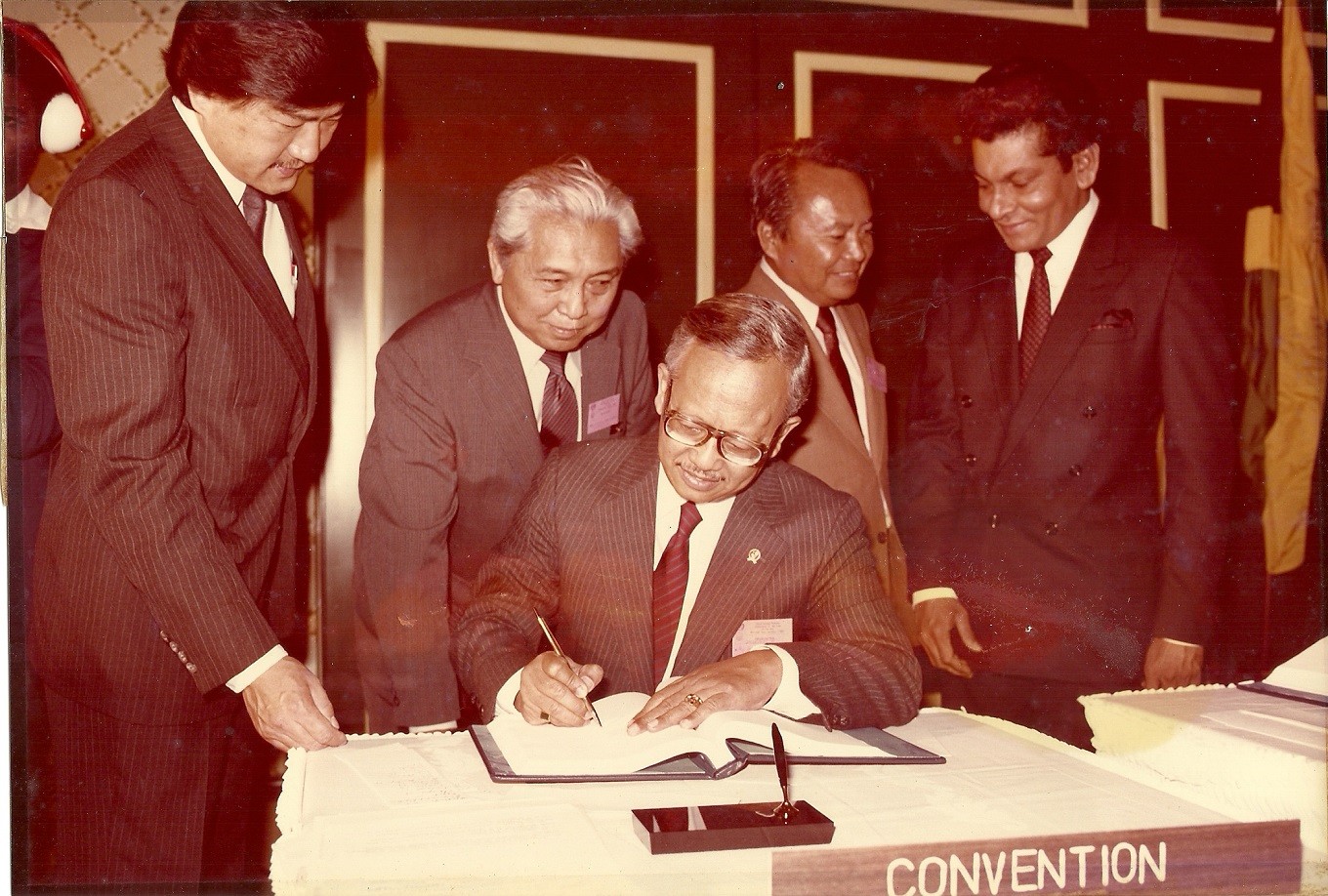Popular Reads
Top Results
Can't find what you're looking for?
View all search resultsPopular Reads
Top Results
Can't find what you're looking for?
View all search resultsWill Indonesia ever have another Mochtar?
Only the most reputable universities in Indonesia can afford to provide access to international law journals to their students (and lecturers).
Change text size
Gift Premium Articles
to Anyone
T
he passing of former foreign minister Mochtar Kusumaatmadja on Sunday is a great loss not only for the international law community in Indonesia but also the entire nation. Indonesia, a country that prides itself as the largest archipelagic state in the world, earns its title only through the brilliance and perseverance of Pak Mochtar.
When he was in his 20s, a young Mochtar was challenged by the then-minister for veteran affairs, Chaerul Saleh, to find the means to bring the Java Sea fully under Indonesia’s sovereignty. This challenge was reasonable as the international law of that era permitted each island to only have a 3 nautical mile territorial sea regardless of its archipelagic nature, hence a pocket of international waters existed within Indonesia’s archipelago.
A brilliant Mochtar accepted the challenge and taking the inspiration from a 1951 judgment of the International Court of Justice on the Anglo-Norwegian Fisheries Case made the case to justify the drawing of an archipelagic baseline for Indonesia. His proposal was adopted by the Indonesian government and was announced on Dec. 13, 1957 by then-prime minister Djuanda.
The journey did not end there, as it took Mochtar and Indonesian diplomats another 25 years until the archipelagic state concept was recognized as part of the United Nations Convention on the Law of the Sea in 1982. This is to date one of the greatest achievements of Indonesia’s diplomacy.
The contribution of Prof. Mochtar to Indonesia and the international community is enormous. Through his idea, he almost single-handedly brought Indonesia’s profile to the forefront of nations contributing to the development of international law.
His departure certainly leaves a big hole in Indonesia’s international law community and leads to the question: Will Indonesia ever have another Mochtar?
In 2018, I had the opportunity to speak with the then-president of the International Court of Justice. He told me that he missed Indonesian law scholars he used to meet in various international forums. Among others, the president specifically named Mochtar. Since the dawn of the Mochtar era, Indonesia seems to be short of international law scholars with a global reputation.
I personally believe that the ICJ president’s observation was remarkably close to the truth. I find it difficult myself to find a contemporary Indonesian international law scholar, particularly on law of the sea, who is domestically and internationally respected as much as Pak Mochtar or Pak Hasjim Djalal.
It does not mean, however, that Indonesia is lacking international law scholars. As a person whose daily activities are much involved in Indonesian international law communities, I can attest that this country is not short of international law scholars. However, these scholars have yet to propel themselves onto the global stage to immerse themselves in scholarly discussions among the giants of international law.
Based on the 2020 census, Indonesia’s population stands at 270 million people. More than 50 percent of the population are in the productive age. It is certainly a large market to attract further interests in the subject of international law.
However, studying international law requires a lot of reading. This requirement in turn may demotivate most of Indonesians from studying international law, considering that recent data suggests Indonesians fall among the lowest globally in terms of reading interest.
Although an article written in 2017 by Lukman Solihin contested the analysis of this data, suggesting that the data was not about reading interest but instead about access to reading, I will nevertheless have to take the issue of “lack of reading interest” into account as a plausible factor in the challenges of attracting Indonesian youth to study international law.
Yet Solihin has a point. I agree with him that access is important and essential. From my observation of giving lectures in various universities in Indonesia, the disparity between students (and sometimes lecturers) in Java and outside Java is clearly visible. Only the most reputable universities in Indonesia can afford to provide access to international law journals to their students (and lecturers).
This again highlights that access to international law materials is still limited. Furthermore, the fact that most international law materials are written in foreign languages adds to the burden for Indonesian students. International law is thus considered to be a subject of the elites, only for those who have mastered English.
As a nation, we must work together to face these challenges. We must first of all be able to provide equal access to international law materials to all Indonesian students and lecturers across archipelago.
Second, Indonesian international law scholars must not be complacent with their current profile or domestic popularity. Indonesian law scholars must enlarge their ponds, swimming with the big fish. This may be done through more participations in international conferences and publications in international law journals.
Third, Indonesian law scholars should be able to identify areas of international law in the development stage. As an example, numerous states are negotiating a draft treaty on biodiversity beyond national jurisdiction and an exploitation regulation on the deep seabed mining. More research and publications on these subjects by Indonesian scholars would contribute significantly to the discussion and will enhance Indonesia’s profile on these issues.
While admittedly filling Pak Mochtar’s shoes amount to near impossibility. But, as a country with so much potential, giving up should never be an option. Hence, with much hard work and commitment, Indonesia should allow itself to give birth to another Mochtar Kusumaatmadja.
***
The writer is a legal adviser on the law of the sea, Foreign Ministry. The views expressed are his own.










